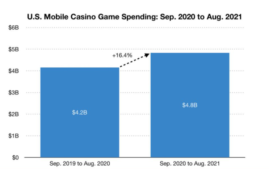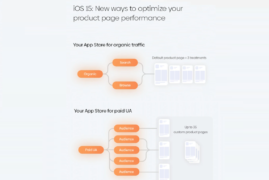Google is developing significant changes to its application metadata requirements.
Table of Contents
- Google ASO Changes: Let us walk you through them!
- ios keyword installs
- buy app installs
Here’s a quick look at the new Google Play rules and the App Store changes and what it all means:
The prerequisites for application pages on Google Play are changing, so from the second half of 2021, new requirements for the application page on Google Play will apply.
Google has published a preliminary version of the guidelines and updated policies and we have summarised the highlights below. It’s worth noting that if an app doesn’t meet Google requirements, it may be blocked on Google Play or removed from the store, so these are Important changes to embrace!
- App names are now limited to 30 characters
- Information referencing installs, awards, rating, and regular reviews or critics’ reviews cannot be added to the app title, short and full description, icon, video, screenshots, or feature graphic.
- The words “Best”, “#1”, “Top”, “New”, “Free”, “Discount”, and “Million Downloads” are also now verboten. References like these do not apply to the functions of the app, so should no longer be used in the Google Play metadata.
- “Download now”, “Install now”, “Play now”, “Try now”, or similar standard calls to action are no longer permitted in association with the app title, icon, short description, screenshots and videos.
- Misleading or ambiguous graphics are not to be used.
- NO emojis or capital letters in any title or short description. Any capitalisation is only acceptable for acronyms and brands that are capitalised on Google Play.
- No large numbers of keywords in the short description.
The reduction in the number of characters allowed may suggest that changes in the Google Play search algorithm are possible but essentially these changes were made to make Google Play fairer.
Fewer characters to play with in titles means more difficulty in getting indexed for the most important keywords. It’s possible that apps with the same name will begin to increase in both the App Store and Google Play.
Google wants to speed up the app launch on Google Play with new features that will hasten the app installation process and make them open and run faster when installed. To this end, Google will be collecting data about the features that new app customers use the most after launch, data which can positively influence behavioural metrics.
Google Play design has been updated on Android devices with the hamburger menu removed from the Google Play Store. Going forward, you will need to tap the user’s photo in the upper right corner to reach your apps or profile.
The new Settings menu looks like this:
- General: account and auto-update
- User Controls: fingerprint and purchase authentication
- Family: parental control and parent guide
- About: Play store, build version, and device certification
Customisable performance metrics can now be found in the Google Play dashboard, anyone can now customise personalised KPIs at the top of the app dashboard. Begin on the dashboard for any app, scroll down to the KPI section, click “choose KPIs” then start with suggested KPIs or create your own.

organic app installs

